Foundationalism: In Praise of Vagueness
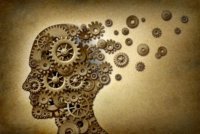
Thoughts inspired by teaching epistemology for the first time and listening to the podcasts of Jordan Peterson.
Epistemology became a major topic for analytic philosophers because they trace their intellectual origins to Descartes and the British empiricists. Descartes dismantles the foundations of his beliefs and then tries to rebuild them on certain grounds. Having used the method of doubt to tear everything down, including even mathematics, he finds irrefutable evidence of the existence of his own mind and then tries to prove that the “external world” exists.

René Descartes
The British empiricists take their inspiration from Descartes, accept his distinction between mind and body and attempt to plump for body as the truly real. Following Galileo and Montaigne’s distinction between primary and secondary qualities, they attempt to dispose of mind-related secondary qualities as merely “subjective” and thus nonexistent.
Strangely enough, analytic philosophers complacently flip between claiming that physical reality is the paradigm of the real and also thinking that the existence of the external world is questionable and in need of proof. It is the latter that drives the analytic philosopher’s interest in epistemology.
The schizophrenic result is that analytic philosophers accept the reality of their own minds and think that there is a need for a philosophical theory proving the entire physical universe outside their minds exists while also venerating Daniel Dennett, Paul Churchland and Francis Crick as philosophers eminently worthy of serious attention and respect though they argue for the unreality of mind.
When a student asked “what’s the external world?” in the Fall semester of 2017 the emperor’s new clothes naiveté of the question was most admirable and Plato’s comment in The Symposium “you’d never have heard what I’m going to tell you now if there wasn’t something in the proverb, ‘Drunkards and children tell the truth’ – drunkards anyway” (217e) came to mind. How nice never to have heard of the so-called external world.

Analytic philosophers describe foundationalism as the notion that the accumulation of knowledge begins with certain foundations. The foundations are supposed to be certain because they are self-evident or indubitable in some other way. These foundations are the axioms upon which all other beliefs and knowledge then rest. This model is quasi-mathematical. Historically, most philosophers have adhered to some form of foundationalism.
The notion that knowledge simply accumulates and that one belief can be stacked upon another into an inviolable system, beginning with an axiom, with neat inferences from one belief to the next is naïve beyond belief. However, the truth of foundationalism is that at the core of someone’s general worldview, his basic stance towards reality, is some kind of metaphysical commitment and many if not all of his beliefs will reflect this basic commitment – depending on how consistent he is. Complicating matters is the fact that a person’s stated beliefs and his real beliefs often conflict. Someone’s real beliefs can be seen through his actions. If someone were to claim be skeptical about the existence of time but make plans for next year’s vacation, or if someone were to question whether a chair exists but proceeds to unthinkingly sit on it anyway, or if G. E. Moore thinks “is this my hand?” is a meaningful question but withdraws his hand when a knife descends towards it, then the person is a liar, fraud and hypocrite.
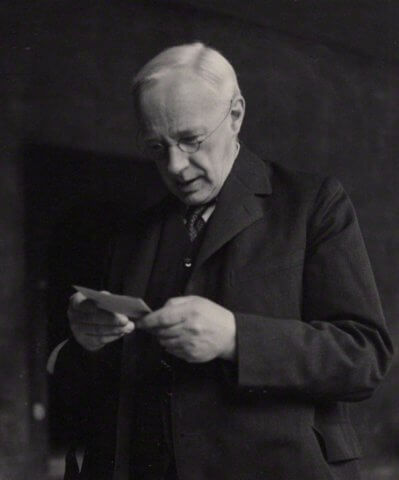
G. E. Moore
To put it in Platonic terms, real knowledge seems to require a congruence of head and heart, Logos and Thumos. There needs to be an agreement between what a person claims to know and what he actually believes. A person with an irrational fear of flying “knows” that plane travel is safe, but does not actually believe it – hence, they do not really know it at all.

Analytic philosophers are typically committed atheists and materialists; the exceptions proving the rule. Since they exist in the conformist atmosphere of academia and they can control who enters the profession and who does not, there can appear to be an amazing consensus of belief concerning these metaphysical positions to the point that metaphysics fell largely out of favor in the academy. Philosophy is the study of inherently controversial and non-definitively provable matters and so consensus effectively removes a topic from philosophical view.
From an outside perspective, it seems that foundationalism has fallen out of favor because it is no longer recognized that adherence to materialism involves a metaphysical decision. Materialism is considered to be the sign of sanity and a prerequisite for being taken seriously in the profession. The question of materialism’s truth is no longer “live.” Such philosophers resolutely refuse to be troubled by quantum physics and the fact that as scientists zero in on subatomic particles and their behavior, the fact that atoms are mostly empty space, or the existence of quantum foam, or subatomic matter existing in an infinite number of places simultaneously, the stable, “common sense” physics of Newton falls apart.
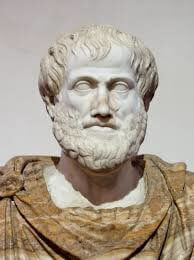
Aristotle
Foundationalism as conceived by analytic philosophers is categorically wrong and is in fact not a live option for any rational person. Two thousand five hundred years ago, Aristotle famously pointed out that first principles are not provable. First principles are axiomatic assumptions from which subsequent reasoning follows. These principles avoid an infinite regress where one belief is justified by another belief which is justified by a prior commitment, etc. Simply stated, it is necessary to start somewhere.
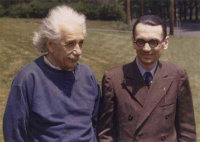
Goedel
Goedel’s theorem confirmed Aristotle’s argument and definitively proved that any axiomatic system beyond the level of complexity of addition, such as multiplication, would require faith in an axiom not provable within the system. Multiplication, for instance, requires at least nine unprovable axioms.
| (A1) | (x1 = x2 → x1′ = x2′) |
| (A2) | (x1′ = x2′ → x1 = x2) |
| (A3) | (x1 = x2 → (x1 = x3 → x2 = x3)) |
| (A4) | ¬ x1′ = 0 |
| (A5) | x1 + 0 = x1 |
| (A6) | x1 + x2′ = (x1 + x2)′ |
| (A7) | x1 ∙ 0 = 0 |
| (A8) | x1 ∙ x2′ = (x1 ∙ x2) + x1 |
(A9) (Φ(0) → (∀xi(Φ(xi) →Φ(xi′)) →∀xiΦ(xi)))
Gödel’s Theorem proves that not only are axioms articles of faith to be treated as self-evident, but axiomatic systems also generate unprovable statements. There will be truths, Gödelian propositions, whose truth or falsity cannot be decided with reference to those axioms. No axiomatic system of any complexity can be both consistent and “complete;” with all true statements proved within the system. Everything can be proved only if inconsistencies (contradictions) are permitted, but that would mean “proving” even false propositions to be true. Therefore, the search for a set of axioms that can capture all knowledge; all true statements, will be fruitless. There is a question mark concerning the most basic and fundamental features of reality. There are no axioms that can account for all features of reality. Since humans need to live and act in the world, they must make their best guesses and then evaluate their guesses in light of the consequences. If their experiences conflict with their assumptions and particularly if life becomes intolerable or impossible as a result, then assumptions will need to be altered.
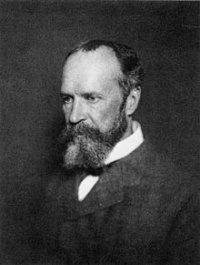
William James
This seems to be humanity’s existential situation and it requires what William James called a leap of faith. What a person believes can be assessed by what he does.
Modern alternatives to foundationalism, the latter mischaracterized as needing to rest on indubitable truths, have been proposed. One is “reliabilism.” This recent notion claims that to have a justified, true belief, the justification must rest on some reliable method for justifying belief. The reliable method can be either some global thing, under some conceptions, or the reliable method might be relative to whatever field of knowledge or endeavor a person is considering.
Reliabilism seems to suffer from being blandly trivial and also from being ridiculously simple-minded. If the question were to be “should someone use a nonreliable method for gathering knowledge?” of course the answer is no. A reliable method should be chosen. So much for the trivial. But the notion that all my knowledge should be based on some reliable method for determining the truth seems to be the stuff of fantasy. What reliable method is there for determining important life decisions or a person’s metaphysical commitments? And metaphysical commitments have a way of permeating many many important beliefs and ways of acting. Aristotle and Goedel have already established that acts of faith are required for moderately complex thought and they are certainly going to be required for action.
Reliabilism, without acknowledging the necessity of a starting point, is also going to suffer from infinite regresses – a reliable method will need to be found for proving that a reliable method has been found and a reliable method will be needed for that and so on.
Coherentism responds to this by suggesting that all knowledge is inferential and no beliefs have any special foundational position. One item of knowledge is inferred from the next. Infinite regresses are avoided by making one’s beliefs circular. A turtle is holding up the earth. What is holding up the turtle? Another turtle. What is holding that turtle up? Another turtle. But if someone just keeps saying “another turtle” nothing has been explained and there is an infinite regress. The coherentist solves this by saying that we know that the thirtieth turtle is holding up the earth because the first turtle is holding up the earth.
Unfortunately, there is no agreement about what “coherent” means. One idea is that if A implies B and B implies C and C implies A, than ABC are part of a coherent web of belief. But this seems too strict, for some beliefs are not going to be so neatly derivable. It seems like “coherent” should mean at least that beliefs should be consistent with each other in which case the call for coherence is just the call for consistency. Or coherence could be that one’s web of beliefs expresses some coherent vision or story of some kind with each belief implying the other. The problem then is that there might be two completely incommensurate coherentist belief systems and thus what is and is not “knowledge” could differ from person to person. The other problem is that there seems no room for reality and truth to impinge. A coherent system of inferential beliefs seems self-contained with no real grounds for remedy should things go wrong.
Coherentism seems to be wrong also because some beliefs do seem to have special foundational status – namely, they embody some particular metaphysical commitment or other. It is possible that though the theory is unsatisfactory, its name may imply the intuition that someone’s body of beliefs should generally make sense relative to one another. It would seem to be a very strange way to live to simply have a collection of random and unrelated “facts” within one’s ken about which no coherent story can be told. From what might perhaps be called a poetic or metaphorical point of view, the name “coherentism” would seem to imply that someone’s beliefs should perhaps loosely make sense relative to one another and express some moderately coherent worldview. Thus coherentism would collapse back into the version of foundationalism that I am defending. This, however, is speculative. But the speculation is supported by the fact that though coherentism has a certain popularity among some analytic philosophers, any attempt to be more precise about what it is for a belief system to be coherent has failed.
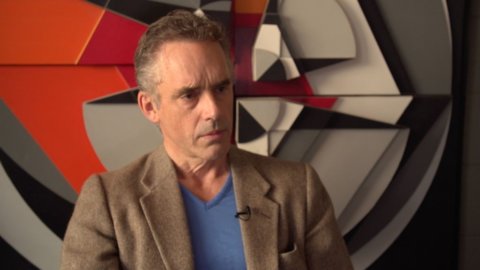
Jordan Peterson
So one problem with coherentism is its unpinning from reality – caught in a circle of inference.
Jordan Peterson makes a suggestion that would illustrate one way to avoid theories with this implication. He comments that mental and physical pain tend to be experienced as real, unignorable and undeniable. Pain has a worldview and a vision of being.
Among other things, it divides the world into those things inducing pain, such as meaninglessness, and those which do not. They thus provide insight into the nature of being. This would seem to be moment when a reality of some kind could penetrate the circle of coherentism, again, returning us back to foundationalism.
Reliabilism and coherentism have not enjoyed the popularity of foundationalism and seem like dead ends. Neither notion has any particularly widespread acceptance or adherence.
Historically, at least, foundationalism remains the most popular epistemic position. Nearly everyone agrees that the Cartesian project of creating certain and indubitable foundations for knowledge failed. The Cogito (I am thinking therefore I am) has some plausibility, but Descartes found it singularly difficult to found anything much on this beginning point.
The question then arises, would it be good thing if Descartes or another philosopher actually succeeded in finding definitively true foundations for knowledge?
The answer is no. The quest for certainty is misguided and its attainment would be a catastrophic end of reality as we know it.
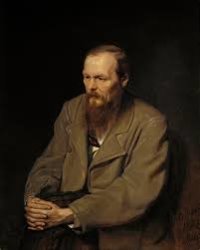
Dostoevsky
Dostoevsky examines the issue in Notes from Underground. His hero considers the possibility of a completed psychology and science in which every element of the human psyche and the objective world has been rendered intelligible and predictable. It turns out in this imaginary scenario, for instance, that everyone acts in his own self-interest and perhaps is driven by pleasure. The underground man writes that in order to regain his freedom, man would need to act to counter his self-interest and engage in complete perversity in order not to be a piano key pressed by the hand of Nature.
Imagine a “reliable method” for determining whom to marry. It would not be decided on the basis of love or respect, it would be purely rational. The question is plugged into the reliable method machine, and the reliable method machine spits out the answer and the answer is 100% reliably certain that this person, or actually anyone matching the same criteria, is the one for you. Instead of saying “I pledge my troth to thee” and in doing so I am taking a chance on you, our fates will be intertwined and for richer and for poorer, in sickness and in health, we will love and support each other, a person will obediently follow the dictates of the reliability machine.
A world of certainty would be intolerable and dead.
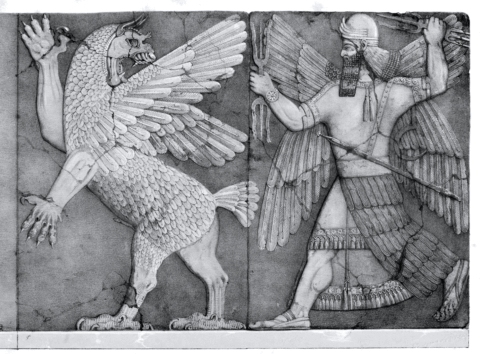
Marduk (Hero) killing Tiamat (Chaos)
Myth and religion describe a universe of Chaos and Order. Order is painfully derived out of the cut up body of Chaos. Order is the Logos; the word that helps organize reality into manageable sections. It is masculine consciousness that emerges out of the feminine Chaos. The great mother both nurtures and succors, but also destroys and engulfs – the Oedipal mother who eats her offspring by not permitting independence of existence.
Chaos is the unknown, the unpredictable, the infinite, the destroyer, failure and pain. It is the source of the tragic aspect of life – a life that must be redeemed by living meaningfully. Pain and suffering are worth bearing if the goal is worthwhile and in fact pain and suffering will even be joyfully submitted to.
Chaos is also where creativity comes from. Science exists in the context of the unpredictable, the unknown and the uncontrollable. There is no need to seek to know if there is no unknown. The attempt to predict and control implies the existence of the unpredicted and the uncontrollable.
The hero bravely confronts Chaos and wrests something from it. We learn by assimilating what was unknown to us and what once defeated us. A parent learns patience when confronted with a baby and thus grows.
To learn a person must be prepared to be a fool – for we are all fools relative to what we do not know. Pride prevents learning – a most Platonic thought.
A good life walks the border between Order and Chaos. Order is the father, the patriarchy, the rule giver and the Logos. Order is structure and hierarchy. Too much order and the father becomes tyrannical and illegitimate. Life and society cannot function without this order which is always imperfect and dead, since it is the gift of the dead to the living. As such it will be imperfect and the young will inevitably notice these imperfections and chafe against them. To socialize a child it is necessary to say no which can be stultifying. It is necessary to give up spontaneous action and unguided will for mutual well-being and social life.
So a happy childhood will combine structure, which is provided externally by the child’s parents – regular meals, patterns of waking and sleeping – with relatively unrestricted play with other children that lets the imagination run free. Creativity and imagination explore the unknown. We learn by entering the unknown and making it familiar.
Too much Order and life is boring and stultifying. Creativity and imagination are lost and learning ceases.
Too much Chaos spells death and insanity. The social rules break down and neighbor murders neighbor, the dykes break, and the flood destroys all.
A perfected psychology, which fortunately is an impossibility, would render each one of us predictable and thus prove that we are all rule-governed devices, since only the mechanistic can be predicted. The underground man’s perversity would actually be common good sense because it would reintroduce Chaos and fecund creativity into a barren world of nothing but Order with no room for free play or growth.
A completed science and psychology would be a living hell making life an unbearable burden and rendering it meaningless. No more leaps of faith and no more mystery of being. No problems to solve. The reliability machine would render everything else machine-like.
Analytic philosophers consider a philosopher to be rigorous if vagueness and ambiguity is eliminated from his thinking. This irascible reaching for certainty and clarity is misguided, mischaracterizing reality as it does. His goal, if reached, would make life unbearable.
Descartes’ certainty would be the death of the soul. First principles would no longer depend on an act of faith and thus would no longer be freely chosen. All rational people would be compelled to accept the same starting assumptions for life and reality – making rationality an abomination.
As Peterson says, historically the devil is hyper-rational. He is an ideologue who falls in love with the creations of his own mind removing from the picture what is above him and below him and imagining like the analytic philosopher that all being is waiting for him to prove it exists through the great epistemological theory – the one that will finally prove that he, the philosopher, is not alone, trapped in his own mind. Since all the rest of us are part of his “external world” we too must await the products of his philosophical imagination to see whether we actually exist or not.

Scientism ignores the context of scientific discovery which is Chaos, the unknown, the unpredictable and the uncertain by focusing on what is visible to it – the results of science which identifies the mechanistic elements of reality, the measurable and unobscured. Through this mistake, all that is invisible to science, is thought not to exist, which includes God, consciousness, morality, emotion, value, purpose and beauty.
Our ancestors had a technology for navigating between Chaos and Order that did justice to both. Myths are sophisticated attempts to describe the human existential situation and to offer suggestions about how to deal with the sorts of crises human experience. They have the advantage that rationality, that rare thing, is not a requirement for getting something of value from them. They are not bad history or bad science.
Plato’s character from the Symposium, his version of Aristophanes, tells a story about hubris and romantic love. God creates globular people with two faces and four arms and legs. Self-sufficient, they roll down hills by sticking out their arms and legs. Too strong for their own good, they hubristically challenge the gods. Ultimate hubris means arrogance in the face of infinite, the almighty, ultimate reality, and ignoring the limits of man’s abilities. These failings mean death. This is an important idea to remember and understand. Be appropriately respectful and even fearful in the face of the unknown and remember what you do not know and cannot do or an implacable force, personified by the gods, will strike you down.
The people are lucky for Zeus decides to be merciful, and to restrain their hubris he cuts the globular people into two. This has the unfortunate effect that the two separated halves want nothing more than to cling to each other to be reunited into one. In their attempt to achieve unity, they hug until they die.
This implies that an excessive closeness and attempt to simply merge with another person is pathological. “Do not drink from the same cup” might capture this notion. You may care for the other person as for yourself, but it is necessary to respect the other person’s wishes and desires which will not always be identical to your own which necessitates a spirit of compromise.
Zeus takes pity on the people and invents sex which permits humans to engage in an ecstatic unity which temporarily slakes their thirsts for each other and permits them to get on with their lives, parting and then joining in a cycle.
This story captures many of the feelings and perhaps the essence of romantic love better than some scientific or rational analysis. If humans were to try to explain earthly romantic love to aliens unfamiliar with it, this story would be a good introduction.
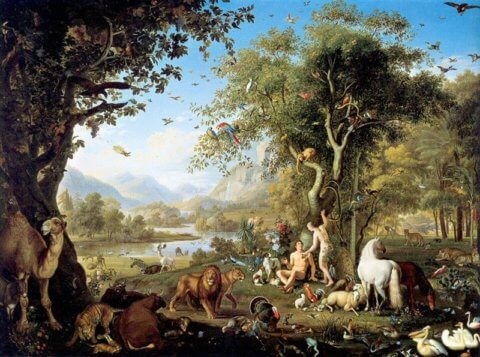
The story of Adam and Eve likewise does a good job of describing the human condition. When after the Fall, it is said that women will face the danger of childbirth in pain and men will toil and sweat over the thorn-ridden earth and that both men and women will die – having arisen from the dust they will return to the dust – this is simply descriptively accurate. Having eaten from the tree of knowledge, we know both good and evil and thus have the burden of moral responsibility for our actions and we also know we will die, which makes us unique among God’s creatures.
The Garden of Eden containing such obvious symbolism as the Tree of Life and Tree of Knowledge, confirming that this is not supposed to be literal history, imagines an animal past where we were once innocent since we were without knowledge of right and wrong. We cannot return to that animal past for flaming swords symbolically prevent us. Erich Fromm in The Art of Loving comments that the human paradise is to be obtained through love and not by a retreat to animal-like innocence. Once right and wrong exist, they cannot be ignored without acquiring moral guilt.
The struggle to make sense of life and to have any worthwhile advice about how to make the most of it is a life-long endeavor. There is no certainty of foundations and no reliable method that can be counted on to produce the right results and correct guesses.
Foundationalism cannot rest on self-evidence axioms. The most that can be achieved is to treat such axioms as self-evident and move on from there. To treat foundationalism as requiring truly certain axioms is to take Descartes as one’s paradigm instead of Plato and Aristotle. Cartesianism is rightly rejected since it would destroy life and human existence by introducing nothing but the known and the orderly. Even if it somehow made sense, it would still not make sense for individuals, since aspects of what is Chaos and what is Order are relative to the individual. A mastered aspect of life is Order and what is unknown remains Chaos and so narratives that make room for both would always be necessary to capture ontogenetic reality if not phylogenetic.




